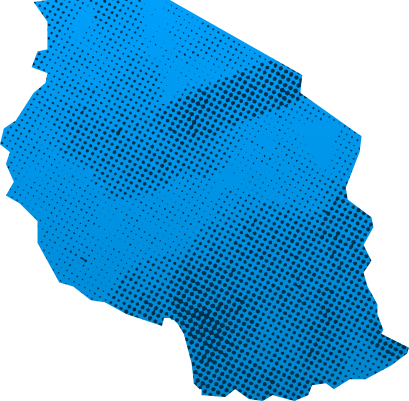
Volunteer statistics (ILO)*
Source: ILOSTATS. The data is collected by ILO from national statistical offices. As national statistics on volunteer work are produced using a variety of approaches and tools, direct and cross-country comparisons are not recommended. For more information, visit https://ilostat.ilo.org/topics/volunteer-work/
No data
Measurement work
Data source
- 2007
- 2008
- 2009
- 2010
- 2011
- 2012
- 2013
-
2014
- Time Use Survey
- 2015
- 2016
- 2017
- 2018
- 2019
- 2020
- 2021
- 2022
- 2023
- 2024
- 2025
- 2026
Laws, Policies, Schemes on Volunteering
Does the country have a piece of legislation on volunteering?
No data
Does the country have a national policy, scheme, plan or strategy specific to volunteering?
No data
Does the country have a sectoral and cross-sectoral policy, scheme, plan or strategy that mentions volunteering?
No data
VNR Reporting
Voluntary National Review (VNR) 2019
View sourceTanzania's Voluntary National Review Report on the Implementation of the 2030 Agenda for Sustainable Development
View sourceReporting positive contribution of volunteering to the SDGs
Paragraph 1, page 12
Voluntary National Review (VNR) in Tanzania had been conducted in a participatory and inclusive manner. The process involved a range of stakeholders including Government departments and agencies, UN agencies, civil society organizations, the private sector, the Union Parliament, the Zanzibar House of Representatives, human rights institutions, volunteers and the media. /.../
Volunteers contributed to the implementation progress, identifying gaps, and formulating strategies for sustainable development.
UNSDCF Reporting
United Nations Sustainable Development Cooperation Framework 2022-2027
View sourceVolunteering integrated into the UNSDCF Results and Reporting Framework
Volunteering integrated in relation to gender equality and/or women’s empowerment
Paragraph 1, page 81
Under output indicator 1.6 (Communities have improved capacities to promote positive social and gender norms, and access to quality basic education, health (with particular focus on RMNCAH, AIDS, TB, malaria, & epidemic prone diseases), nutrition, WASH and protection services):
Baseline: Malaria: 3 (Community owned resource persons-CORPS, Community health volunteers, Ward health committees)
Target (Duration of Cooperation Framework): Malaria: 3 (Community owned resource persons-CORPS, Community health volunteers, Ward health committees).
Paragraph 2, page 82
Under output indicator 1.6 (Communities have improved capacities to promote positive social and gender norms, and access to quality basic education, health (with particular focus on RMNCAH, AIDS, TB, malaria, & epidemic prone diseases), nutrition, WASH and protection services):
Baseline: Protection: 1,288 social welfare officers, 1,500 community development officers, 9,222 guidance and counseling teachers and 0 community health workers/volunteers, # (TBD) of incentive workers in refugee camps.
Target (Duration of Cooperation Framework): Protection: 1,500 social welfare officers, 2,000 community development officers, 22,882 guidance and counseling teachers and 500 community health workers/volunteers; # of incentive workers in refugee camps.
Paragraph 3, page 99
Under output 4.5 (Women and girls increasingly participate in and lead decision-making in political, economic and public life and benefit from gender-responsive and inclusive governance):
Baseline: Initiatives implemented in 636 wards (568 Mainland, 67 Zanzibar); Refugees (14): EABAP (Engaging Adolescent Boys through Accountable Practice), AMAP (Engaging Men through Accountable Practice), Girl shine, 16 days of activism, International Women’s Day, SASA (Start Awareness Support Action), volunteer mobilization in community, capacity building of incentive workers, community leaders, Magistrates, Police, MoHA/RSD to address root causes of GBV and gender stereotypes, awareness raising campaigns by UNHCR and implementing partners.
Target (Duration of Cooperation Framework): Initiatives to be implemented in 650 (new); Refugees (20): EABAP (Engaging Adolescent Boys through Accountable Practice), AMAP (Engaging Men through Accountable Practice), Girl shine, 16 days of activism, International Women’s Day, SASA (Start Awareness Support Action), volunteer mobilization in community, capacity building of incentive workers, community leaders, Magistrates, Police, MoHA/RSD to address root causes of GBV and gender stereotypes, awareness raising campaigns by UNHCR and implementing partners.
